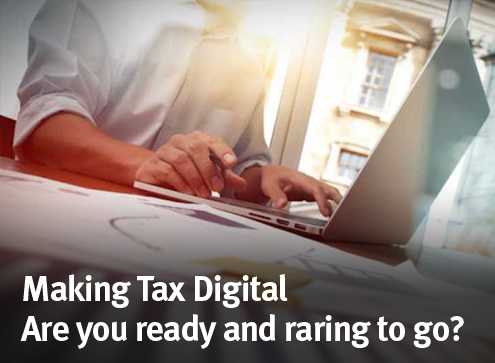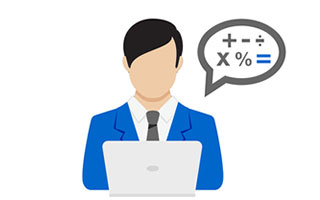Small businesses – Making Tax Digital

Making Tax Digital (MTD) is a UK government initiative that sets out a vision for the ‘end of the tax return’ – oh how amazing – and a ‘transformed tax system’ by 2020. HM Revenue and Customs (HMRC) states that the main goal of MTD is to make tax administration more effective, more efficient and simpler for taxpayers.
And at last it has arrived. The next five years hold a lot of promise; it could bring around a £57 billion gain for businesses due to the extra productivity it could generate. That is if an independent report commissioned by QuickBooks is proved to be correct. Furthermore, a report conducted by the Productivity Payout: UK Small Businesses and the Digital Economy suggested there could be a first year £6.9 billion benefit to making tax digital – this is then predicted to snowball as companies start to incorporate other digital tools into their business.
Lack of Awareness
Another research piece, also conducted by QuickBooks, found that as many as one in five small businesses where unware of making tax digital and its possible benefits – the need to increase awareness is paramount. Once companies get used to the change, the report indicates that for sole traders it could result in as much as £1,900 in net gain each year, while more traditional small businesses with 10+ employees could see an increase of £18,000 to their top line growth.
These gains are thought to be even more critical as the UK navigates its way through the process of BREXIT and whatever form that may come in – the need to remain competitive and growth-driven remains more important than ever.
The VP of QuickBooks had this to say, “a key stat for us is that 89% of small businesses are more successful with an accounting professional, so our goal is to connect the two together”.
The Pay-out
The £57 Billion pay-out sounds great; however, there are conditions upon which it can be experienced in the five-year time frame. For example, one remains that the continued rollout of making tax digital to other taxes – which HMRC delayed to 2021 at the earliest. Additionally, achieving that figure is also contingent on the integration of open banking into financial management software. SME’s will also have to take initiative and collaborate with the software industry in order to boost training and support.
While there is a sense of inevitability of hurdles to be expected, it does seem certain that the move towards digitalisation is going to occur. This argument is linked to the importance of technology in our everyday and business lives and making tax digital will only accelerate in the future.
The VP of QuickBooks stated that “There will be more freelancers – 50% self-employed by 2020, where you will see the merging of your personal and business life together. 85% of people now use smartphones, and 30% of business use it as a primary device to run their business from”.
So, the evidence is clear and as we already know, the future is digital.
For more blogs that can help your business grow and improve, make sure you take a peek – you won’t regret it.



